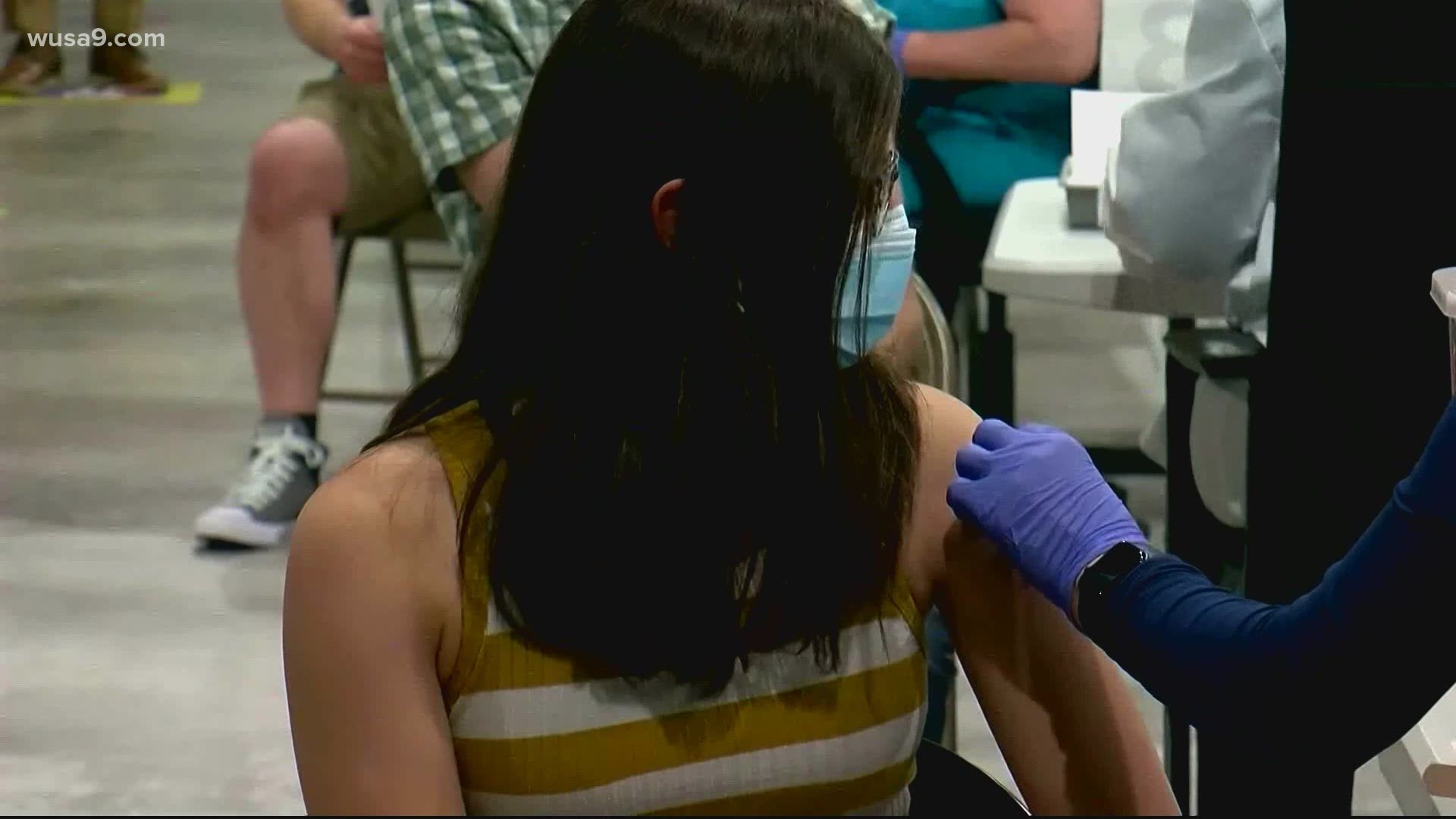WASHINGTON — Just as millions experience temporary muscle discomfort after the second dose of the Pfizer and Moderna vaccines, the Centers for Disease Control and Prevention is now investigating whether heart muscle discomfort in a small number of adolescents is linked to a two-dose shot.
The heart condition, known as myocarditis, is characterized by the swelling of heart muscle itself. Symptoms may include chest pain and shortness of breath — a condition, cardiologists say, which usually goes away on its own.
Severe cardiac damage is exceedingly rare, but has occurred, the CDC said.
The agency is now past its first week of assessing whether myocarditis symptoms exhibited in dozens of mostly teenage boys are tied to the Pfizer or Moderna vaccines.
Dr. Ameya Kulkarni, a Tysons-based cardiologist with Kaiser Permanente, said he has diagnosed the condition in a handful of adult patients several days after their vaccinations.
Yet in an interview Monday, Kulkarni said parents should not be alarmed, and agreed with experts that the CDC investigation has little to no chance of pausing the mRNA two-dose vaccines.
“The most common symptom is chest pain, so if a child, or young adult, or older adult has chest pain that feels like pressure in the days following the second covid vaccine, talk to your doctor and make sure you're not worrying alone,” Kulkarni said.
“So far as we know, myocarditis is limited. Which means, it happens for a few days and goes away on its own,” added Kulkarni.
The CDC did not provide a precise number of instances of myocarditis, yet reported symptoms appeared most commonly after the second dose and within four days of vaccination.
The condition was also reported in females, but more commonly in adolescent males.
Sign up for the Get Up DC newsletter: Your forecast. Your commute. Your news.
Sign up for the Capitol Breach email newsletter, delivering the latest breaking news and a roundup of the investigation into the Capitol Riots on January 6, 2021.

